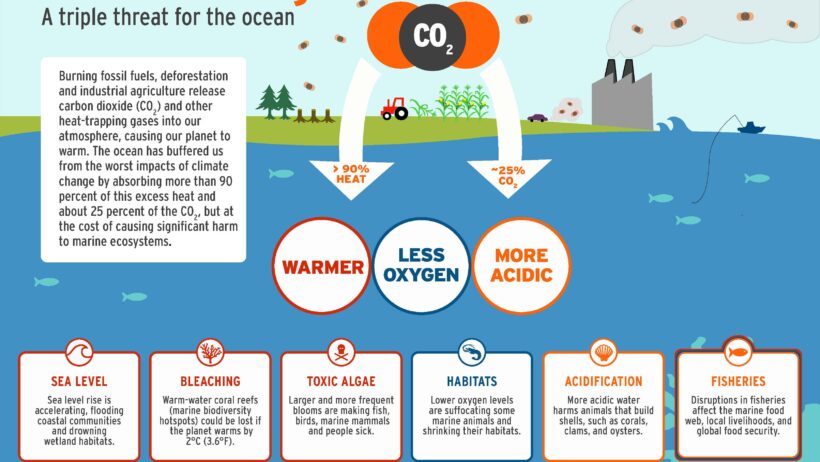Global warming, an insidious manifestation of climate change, has become one of the most pressing and contentious issues of our time. Its omnipresence in discussions surrounding environmental policy, energy production, and even public health animates countless discourses on a local and global scale. The question arises: how can global warming be effectively managed and ultimately prevented? This inquiry mandates a multifaceted approach that considers technological advancements, legislative measures, individual behavioral changes, and international cooperation.
To commence with, technological innovation plays an instrumental role in addressing the ramifications of climate change. The development and enhancement of renewable energy sources are pivotal. Solar, wind, hydro, and geothermal energy present sustainable alternatives to fossil fuels, which are significant contributors to greenhouse gas emissions. Transitioning to these cleaner energy sources not only curtails emissions but also diminishes reliance on finite resources. Investing in energy storage technologies, such as advanced battery systems, can further bolster the efficiency and practicality of renewable energy. Thus, a systematic overhaul towards sustainable energy production is paramount.
Another key aspect lies in the realm of energy efficiency. Upgrading existing infrastructures, such as buildings and transport systems, can lead to significant reductions in energy consumption. Implementation of energy-efficient appliances and enhanced insulation can lead to immediate reductions in carbon footprints for households and businesses alike. From large-scale initiatives, such as retrofitting public buildings to intricate smart grid technologies that efficiently distribute energy, the pursuit of innovation should be relentless and as comprehensive as possible.
However, technology alone does not suffice. Legislative frameworks must also adapt and evolve. Governments wield substantial influence over carbon emissions through regulatory measures and incentives. Implementing carbon pricing, whether through carbon taxes or cap-and-trade systems, encourages corporations to internalize the cost of their emissions. Such policies compel businesses to innovate and find ways to decrease their output of greenhouse gases. Additionally, subsidizing renewable energy projects can catalyze the transition to a low-carbon economy. Establishing strict emission standards for industries is another vital measure that can guide entities towards sustainable practices.
Equity is a significant consideration in policy formulation. Disproportionate impacts of climate change often affect vulnerable populations, aggravating existing social inequalities. Therefore, climate policies should be designed to promote social equity, ensuring that marginalized communities are not left bearing the brunt of environmental degradation. Integrating justice into climate action can foster wider support and facilitate collective action, which is critical to enacting meaningful change.
Furthermore, individual action remains a cornerstone in the fight against global warming. Collective behavioral change can yield profound effects. Individuals can contribute through conscious consumption practices, such as choosing sustainable products, minimizing waste, and reducing reliance on single-use plastics. By fostering a culture of sustainability, consumers can pressure corporations to adopt environmentally friendly practices. Grassroots movements play a crucial role in amplifying this engagement, creating a tapestry of local efforts that can coalesce into national and global initiatives.
Moreover, education serves as a powerful tool for mitigating climate change. Raising awareness about the science behind global warming and its repercussions enhances public understanding and fosters action. Educational programs that promote environmental literacy can instill a sense of responsibility in younger generations, enabling them to take informed actions both individually and collectively. As future stewards of the planet, equipping youth with the knowledge they need to tackle climate challenges is indispensable.
International cooperation is equally essential in this global endeavor. Climate change transcends national borders, necessitating a unified approach. Treaties such as the Paris Agreement represent monumental strides toward global consensus on reducing greenhouse gas emissions. Collaborative research initiatives and technology transfers between nations can facilitate the sharing of innovative solutions. Countries can also form alliances, sharing best practices and working together toward ambitious climate goals. However, international relations often complicate such cooperation, with conflicting national interests and economic considerations sometimes hindering progress.
Moreover, the urgency of the climate crisis necessitates transformative shifts across sectors. The agriculture sector, for example, must embrace sustainable farming practices. Techniques such as agroforestry, permaculture, and regenerative agriculture can enhance soil health while capturing carbon dioxide from the atmosphere. Reducing food waste and optimizing supply chains are equally crucial to minimizing the sector’s carbon footprint.
Transportation, another significant contributor to global emissions, must evolve as well. Accelerating the transition to electric vehicles, expanding public transportation networks, and promoting active transport options—such as cycling and walking—can dramatically reduce reliance on fossil fuels. Investment in infrastructure that promotes sustainable transport will not only curtail emissions but also improve urban air quality and public health.
In conclusion, managing and preventing global warming is an intricate tapestry woven from technological advancements, legislative measures, individual actions, education, and international cooperation. While the challenge may seem daunting, a committed and cohesive approach can lead to viable solutions. By harnessing our collective resources—be it through innovation, policy reform, or grassroots movements—we can mitigate and ultimately reverse the effects of climate change. It is imperative that society recognizes the urgency of this mission, as the consequences of inaction will resonate for generations to come. The time to act is now, and the paths forward are numerous; the choices we make today will define the world we leave for tomorrow.








